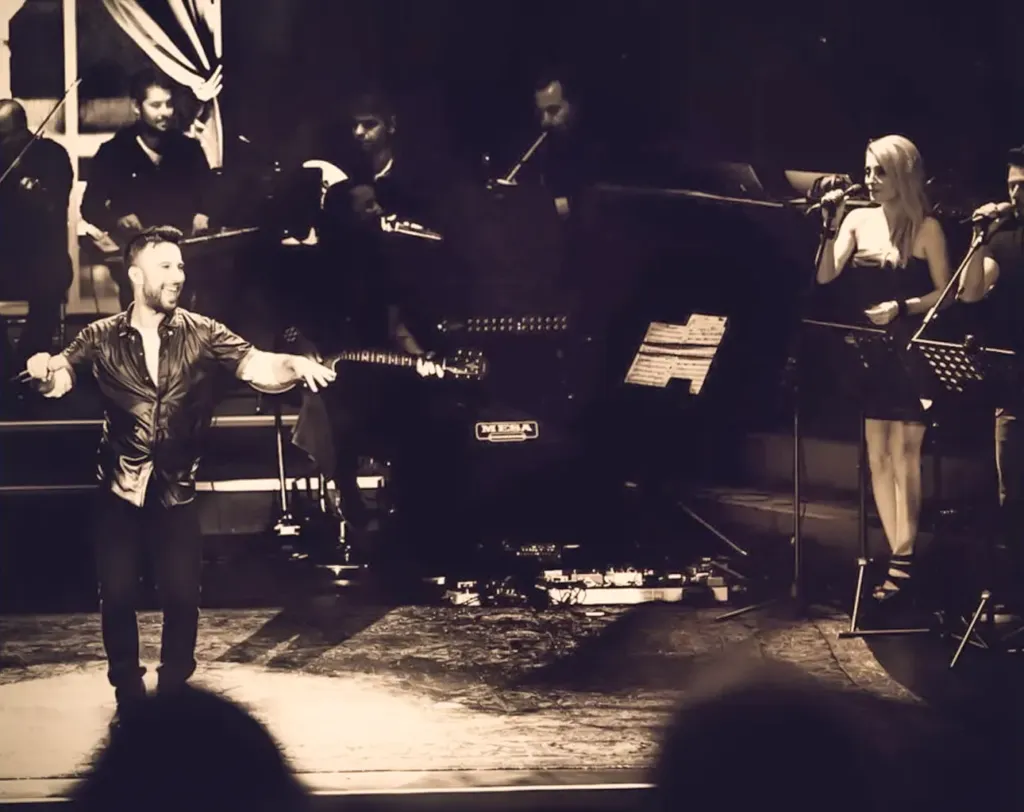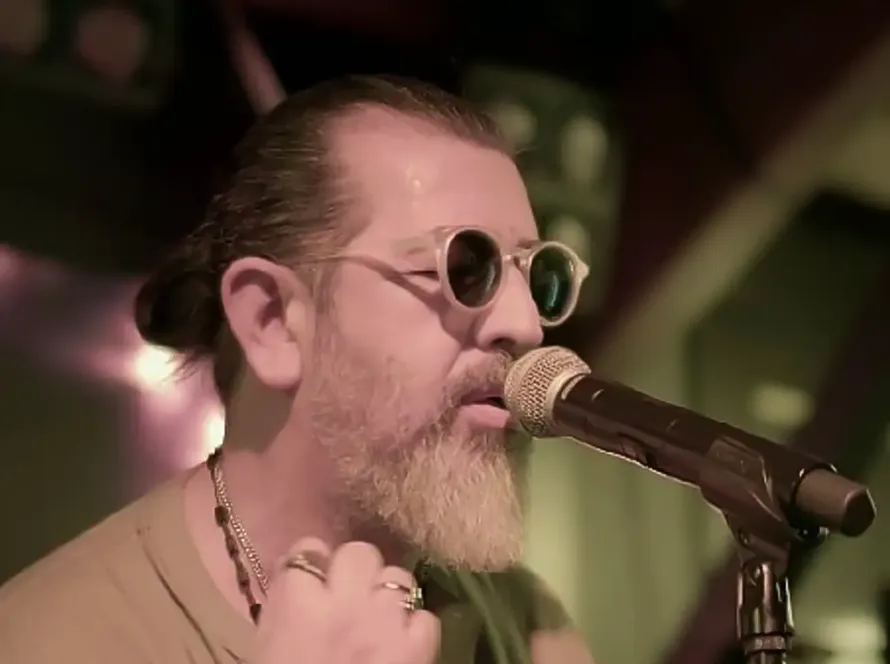Let’s get one thing straight. When you’ve spent over two decades as the secret weapon behind Turkey’s biggest megastars, you learn a thing or two about music. We’re talking about being the trusted voice on stage alongside icons like Tarkan, Nükhet Duru, Işın Karaca, Ziynet Sali, Defne Samyeli, Cem Belevi, Buzuki Orhan, and Sinan Erkoç, a high-level education in execution and competence.
Gülşin Demirkeser Önal has lived that life since 2000. She’s the professional soloist and vocalist whose credentials read like a who ‘s-who of the Turkish music industry. But here’s the catch: what happens when a voice so integral to other people’s sounds decides to turn the microphone back on herself?
You get a reinvention. A new chapter. A move from the familiar stages of Istanbul to the multicultural creative hub of Dubai. And, most importantly, you get to hear what she reallythinks.
“I’m living in Dubai now,” Gülşin states, and you can almost feel the energy shift. “It has become part of my imagination, and it’s re-emerging as I work in the studio. I’m saying yes to this adventure to add depth and a multi-layered structure to our music.”
It is a change of scenery. It is a “courageous” quest to rediscover her own sound.

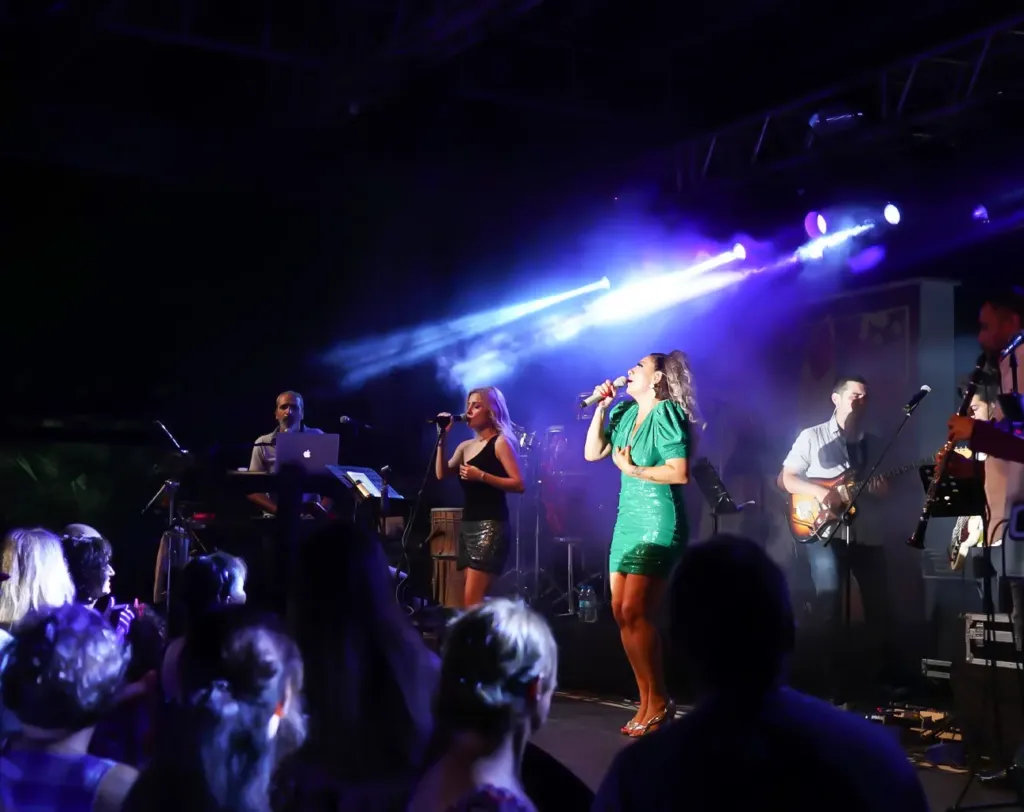
The Musician’s Musician
To understand where Gülşin is going, you have to know where she comes from. She’s what the industry calls a “musician’s musician.”
Her foundation is rock-solid, built on two seemingly opposite yet complementary pillars of musical education: the Pera Art Center’s flute department and the legendary Üsküdar MusikiCemiyeti’s choir.
Think about that for a second. On one hand, she has the rigorous, structured, harmonic language of Western classical music. On the other hand, she’s steeped in the rich, microtonal, and emotional world of the Turkish makam system. She mastered both.
This dual background is likely why she appreciates music on a level that most people don’t.
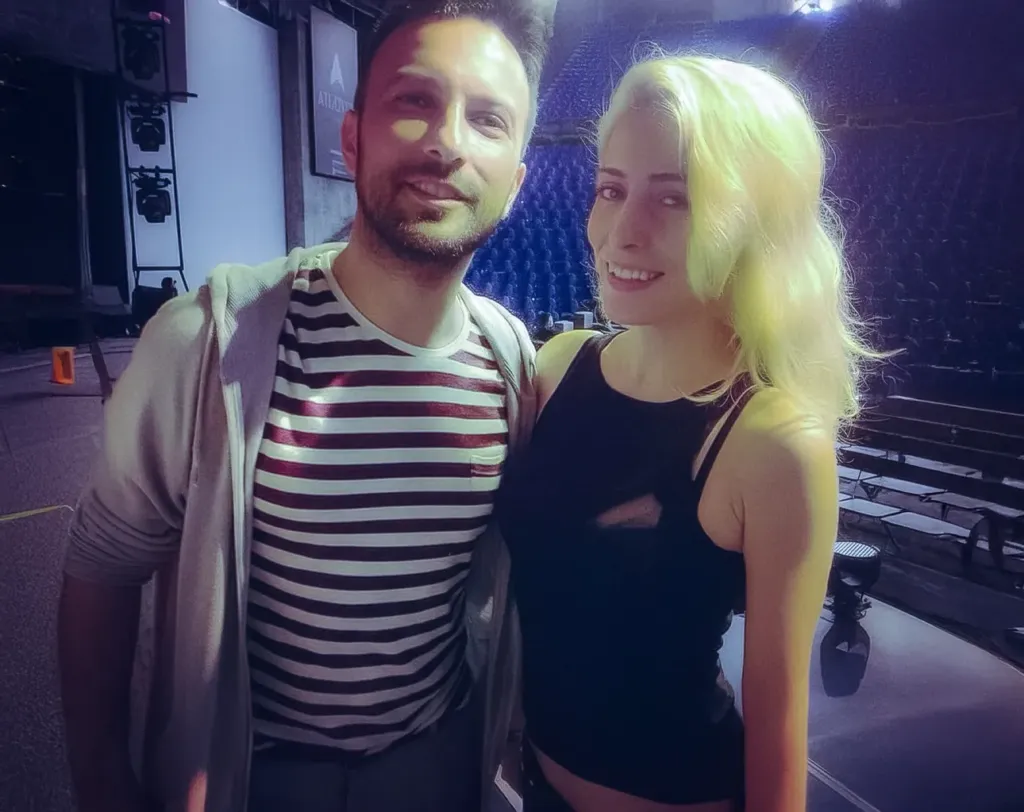
“I love listening to experimental and folk music,” she explains. “When a concerto plays, it’s impossible for someone to understand and show interest as much as I do. As a musician, I understand just how exceptional the work being done there is. People usually prefer to listen only if the melody sounds pleasing to their ears. I listen with admiration for both the ear and the mastery.”
She sees the code behind the curtain. “Turkish music,” she asserts, “is mathematically and compositionally (makamsal) much richer than Western music.”
It is a deep appreciation for the complex genius of her own heritage. It’s this profound understanding that she brought to her work on television, as a resident artist on Buzuki Orhan Osman’s TRT program “Teldeki Tınılar“ and on NTV’s “Gündüz Gece.”
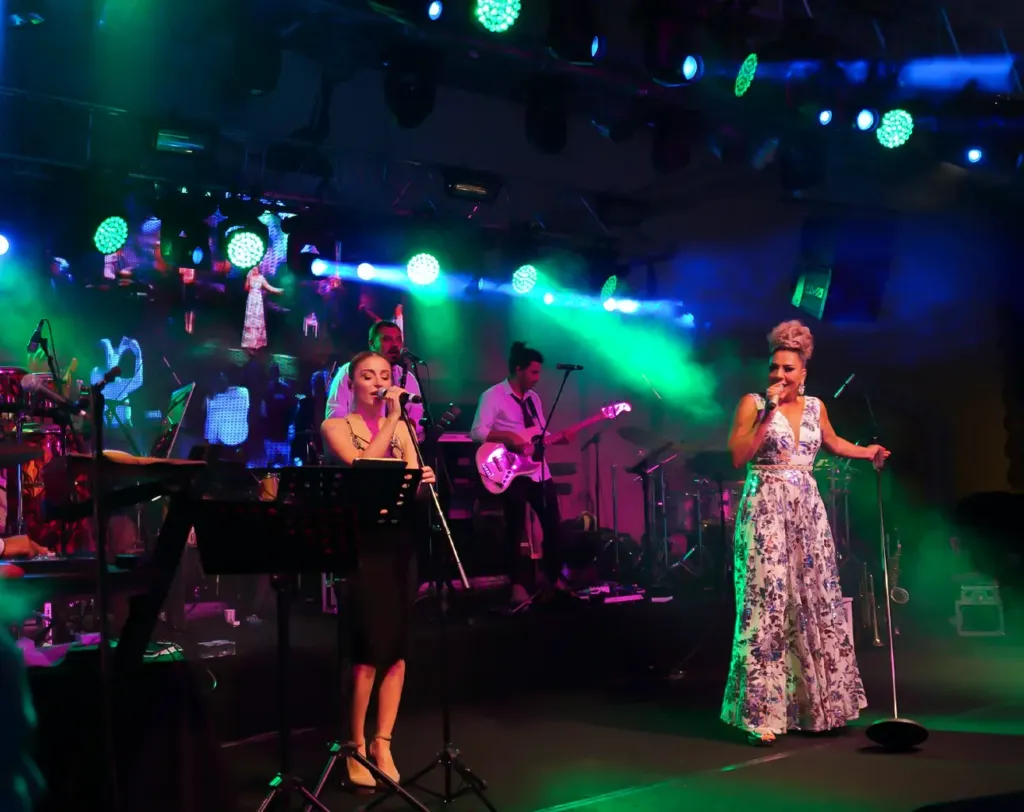

A New Chapter in a New City
For an artist with such a deep well of knowledge, the multicultural landscape of Dubai isn’t a distraction; it’s a force multiplier.
“Dubai is a very multicultural place,” she says. “This combination of our different identities feeds our musical imagination from a broad perspective. It allows us to offer our listeners an experience that appeals to them on both an intellectual and emotional level.”
This is where her story gets exciting. After 20 years of executing others’ projects, she’s now using this new environment as a catalyst for her own. And she’s finding that the very act of living in a global crossroads is giving her permission to break rules.
“This is a place of inspiration for me,” she reflects, “a place that gives me the courage to rediscover my music.”

A Genre, A Language
Here’s the core of her philosophy. If you ask her what “style” she plays, you’re asking the wrong question.
“Instead of defining my music as a ‘style,’ I see it as a unique and, at the same time, universal form of expression, a storytelling language,” she clarifies. “You could briefly call it a limitless adventure, fed by the diversity of different cultural and musical traditions, evolving with a discovery and innovation search.”
This is a game-changer.
When you see music as a “language” rather than a “genre,” the boundaries dissolve. A Turkish makam can have a conversation with a jazz chord. A classical flute line can weave around a powerful, soulful vocal. It’s both fusion and fluency.
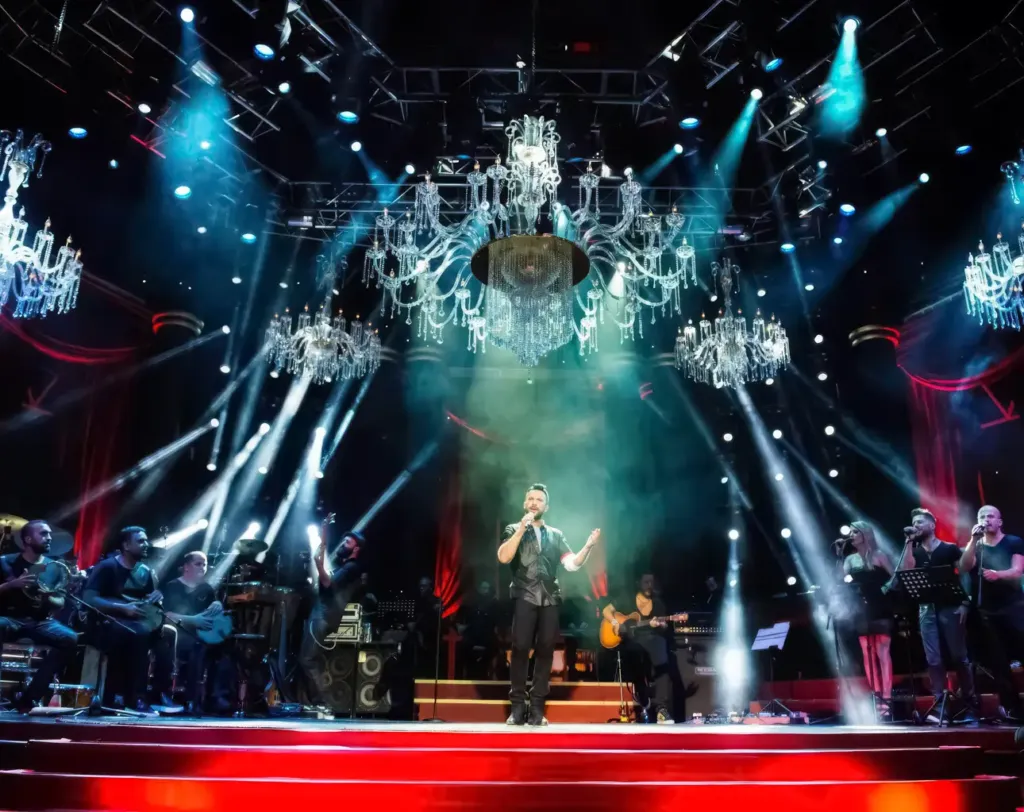
“While I’m telling stories about life in my songs, I also desire to rediscover life itself,” she says. “The deep bond I build with my listeners both honors me and motivates me to produce more.”
In Dubai, this “language” is on full display. “We’re building our repertoire from pieces that our listeners know and love, as well as brand-new works that are still in production. We’re working to make every moment of the stage special and to offer our listeners a unique experience.
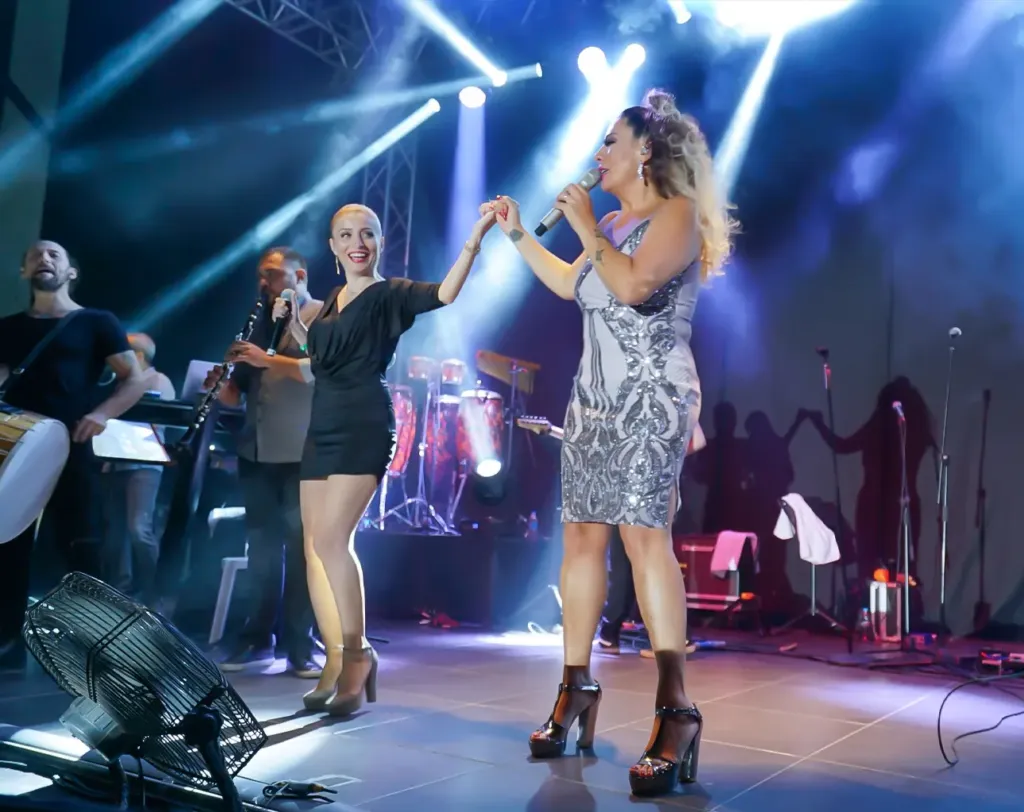
“Going Back to What I Promised”
There’s a powerful, almost rebellious undercurrent to her new chapter. It’s a feeling of returning to a core promise she made to herself, long before the big stages and the famous names.
“I’ve made a lot of Turkish songs in different genres before, and I love them all,” she admits. “But my goal right now is to go back even further, musically, and truly do the things I promised I would do.”
It’s a sentiment many creatives feel: the urge to return to their roots.
“Even though this is a new beginning, it also feels like I’m picking up right where I left off.”

This is the credo of the independent artist. And she’s keenly aware of the struggle and the reward. “For independent musicians, the biggest motivation is, I think, being heard. And look, there are truly magnificent musicians out there whose names have never been heard.”
Gülşin Demirkeser Önal, however, is in a unique position. She’s has the name, she’s has the chops, and now, she has a white-hot new motivation.
She is the bridge. She’s the classically trained flutist who understands the “math” of a makam. She’s the powerhouse vocalist who shared the stage with Tarkan and now shares her own soul in a Dubai venue. She is the artist who sees music as the story itself, a fantastic adventure.
And she’s just getting started.
